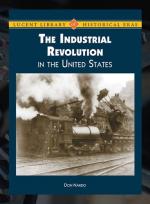|
This section contains 5,134 words (approx. 18 pages at 300 words per page) |

|
SOURCE: "The Shapes Arise," in Flesh of Steel: Literature and the Machine in American Culture, Vanderbilt, 1967, pp. 3-20.
In the excerpt that follows, West examines various British and American authors' treatment of industrialism as a form of power and discipline.
The machine proves itself increasingly fecund not only in the economic goods but in its own symbolism. Its twentieth-century forms—the assembly line, the power plant, the skyscraper, the automobile, even the wrist watch, at once dictatorial and fastidiously unobtrusive—connote with striking effectiveness the extent of its control over society and the meticulousness of that control. The symbolism is endless: it is inherent in the closer fusion of the factory with the higher sciences; in the transformation of city traffic into a function of the machine, its inner motions rhythmically meshed like those within an engine or a factory room; in a new polish of surfaces, a...
|
This section contains 5,134 words (approx. 18 pages at 300 words per page) |

|


